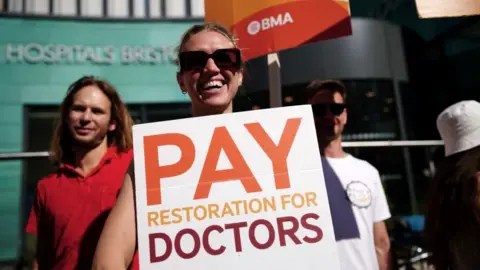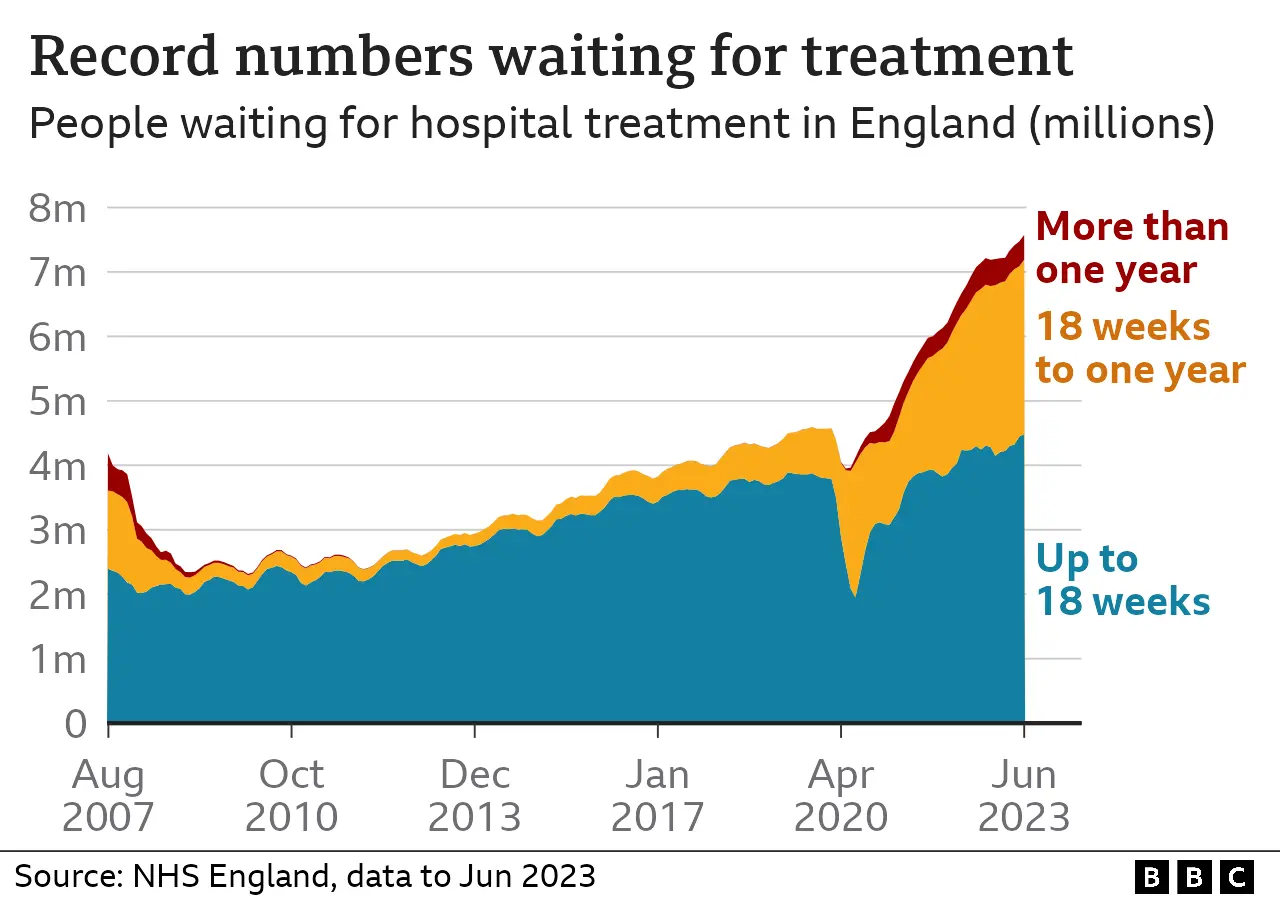Junior doctors and consultants to strike together in England
 PA Media
PA MediaJunior doctors and consultants in England are to coincide strikes during the autumn in an escalation of the pay row with the government.
It will be the first time joint walkout and comes after junior doctors voted in favour of continuing with strikes.
In the British Medical Association (BMA) ballot, 98% voted in favour on a turnout of 71% which gave the union a new six-month mandate.
Ministers called the co-ordination of strikes "callous and calculated".
Junior doctors have already staged five walkouts this year and will now strike again from 20 to 22 September - the first day of which coincides with a walkout by consultants.
They will then walk out from 2 to 4 October, which is when consultants will also be striking.
When the two groups strike together, cover will be provided to staff emergency services as well as a small amount of cover on the wards.
BMA junior doctor committee co-chairmen Dr Rob Laurenson and Dr Vivek Trivedi said: "We are sending a single message, loud and clear to the government: 'we are not going anywhere'.
"We are prepared to continue with our industrial action, but we don't have to - the prime minister has the power to halt any further action by making us a credible offer."
The BMA says a 35% pay rise is needed for junior doctors to make up for what it says are 15 years of below-inflation wage rises.
The government has given junior doctors 6% plus £1,250, which works out at an average of nearly 9%.
Ministers have said there will be no more talks because that was the final settlement, pointing out they had agreed to pay what the independent pay review body had recommended.
So far, more than 940,000 appointments and treatments have had to be postponed because of strike action by NHS staff since December.

Alongside junior doctors and consultants, nurses, ambulance workers, physios and radiographers have all also taken part in strikes.
Most of the other health unions have ended their strike action.
NHS England and ministers have both said strikes by doctors are a factor in the rising number of people waiting for treatment.
Consultants have taken part in two walkouts so far. The BMA represents about two-thirds of doctors.
Latest figures show the hospital backlog had topped 7.5 million for the first time, meaning nearly one in seven people is on a hospital waiting list.
Sir Julian Hartley, chief executive at NHS Providers, which represents health managers, said the co-ordinated action was a "serious escalation" of the dispute.
"We now face the grim prospect of another six months of walkouts from junior doctors, which will pile even more pressure on the NHS this winter, causing yet more disruption for patients.
"Trust leaders understand doctors' reasons for striking, but patients are paying the price."
Health Secretary Steve Barclay said the ballot result was "extremely disappointing" and would weigh heavily on the rest of the workforce and patients who were both "shouldering the brunt of the BMA's relentless strike action".
"My door is always open to discuss how we can work together with NHS staff to improve their working lives, but this pay award is final, so I urge the BMA to call an end to this callous and calculated disruption," he said.
This story was updated on 25 September to include reference to the 71% turnout in the ballot.

Are you a doctor with a view on the strikes? Are you a patient affected? Share your experiences by emailing [email protected].
Please include a contact number if you are willing to speak to a BBC journalist. You can also get in touch in the following ways:
- WhatsApp: +44 7756 165803
- Tweet: @BBC_HaveYourSay
- Upload pictures or video
- Please read our terms & conditions and privacy policy
If you are reading this page and can't see the form you will need to visit the mobile version of the BBC website to submit your question or comment or you can email us at [email protected]. Please include your name, age and location with any submission.
